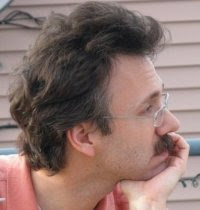I was visiting with my primary care physician yesterday, and as we sat in his office waiting for a long article to print, I decided to pick his brain a little bit about the issues we've been discussing here -- where do health care costs come from, and how might we control them?
If you think it's a little odd that I was "visiting with" my PCP, or that he had time to usher me into his office, log into an online database, and pull up and print a 16-page article on a medication we were discussing, well, that's part of the story. My physician is a practitioner of what's sometimes called "concierge medicine." In a nutshell, this means that his patients pay him a flat yearly fee. What this fee purchases, in my case anyway. is first of all an annual physical that has some teeth. I come in a week or two beforehand, get a full battery of eye, ear, breath and blood tests from his assistants, as well as an EKG. I'm then given a fairly fat packet of questionnaires to fill out, regarding things as diverse as eating habits, indicators of depression, etc. I fill these, drop them in the mail to his office, and then in another week or so I come in. I get an actual exam, then we repair to his office and discuss the lab work, the questionnaires, and anything else. It's not been out of the ordinary for us to spend 60-90 minutes in such discussions.
In addition to the annual physical, the fee in effect "buys" me readier access. I can generally see him on as little as two days' notice. I can call him or email him directly. In the office, there's never a sense of being rushed. This all comes about because his patients number in the low hundreds, rather than in the thousands.
(Insurance does not cover the annual fee. And the fee does not cover any costs other than the physical. I carry an insurance plan, and have a copay for all services, including office visits).
Now, this sort of medical practice has its detractors, especially those who claim that it creates an unfair, two-tier medical system. My point here is not to get into that debate, but rather to provide context that illuminates the views he shared with me.
His first contention was that many PCPs today are so heavily burdened they can do little besides act as "traffic cops." They see people quickly, and often simply wave them on to one or another specialist. The specialists then prescribe expensive tests, because a) that's what they do, b) that's what many patients want (and c), my own addition, I imagine some specialists stand to profit therefrom). In my doctor's view, if PCPs were able to spend more time with patients, develop deeper medical histories, and consider a range of issues including mental health, many fewer expensive tests would be performed.
I explained his practice at length because I think it's clear how his practice choice and his view of cost sources are related.
He also spoke openly about the "extraordinary, constant psychological pressure" brought on by the fear of lawsuits. In his view, defensive medicine is a large contributor to costs. In his view, those who espouse some sort of reform aimed at moderating this problem are "not wrong."
By then the article was done printing, and precisely because he's generous with his time I try not to abuse it, so I didn't pursue the question.
But just to recap, one veteran practitioner of primary care opines that allowing primary care physicians to somehow spend more time with their patients would have a significant positive impact on costs, as would reforms that would limit the practice of purely defensive medicine.
Friday, September 11, 2009
Subscribe to:
Post Comments (Atom)


Thanks for sharing your experience and discussing what concierge medicine is. And we definitely need more PCPs.
ReplyDelete